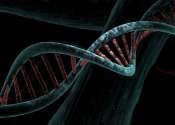The importance of keeping a beat: Researchers link ability to keep a beat to reading, language skills
The findings of a Northwestern University study of more than 100 high school students lend proof to the surprising link between music, rhythmic abilities and language skills.
Sep 17, 2013
1
239




